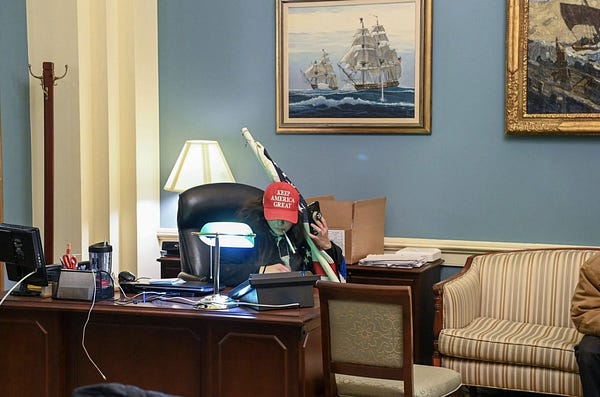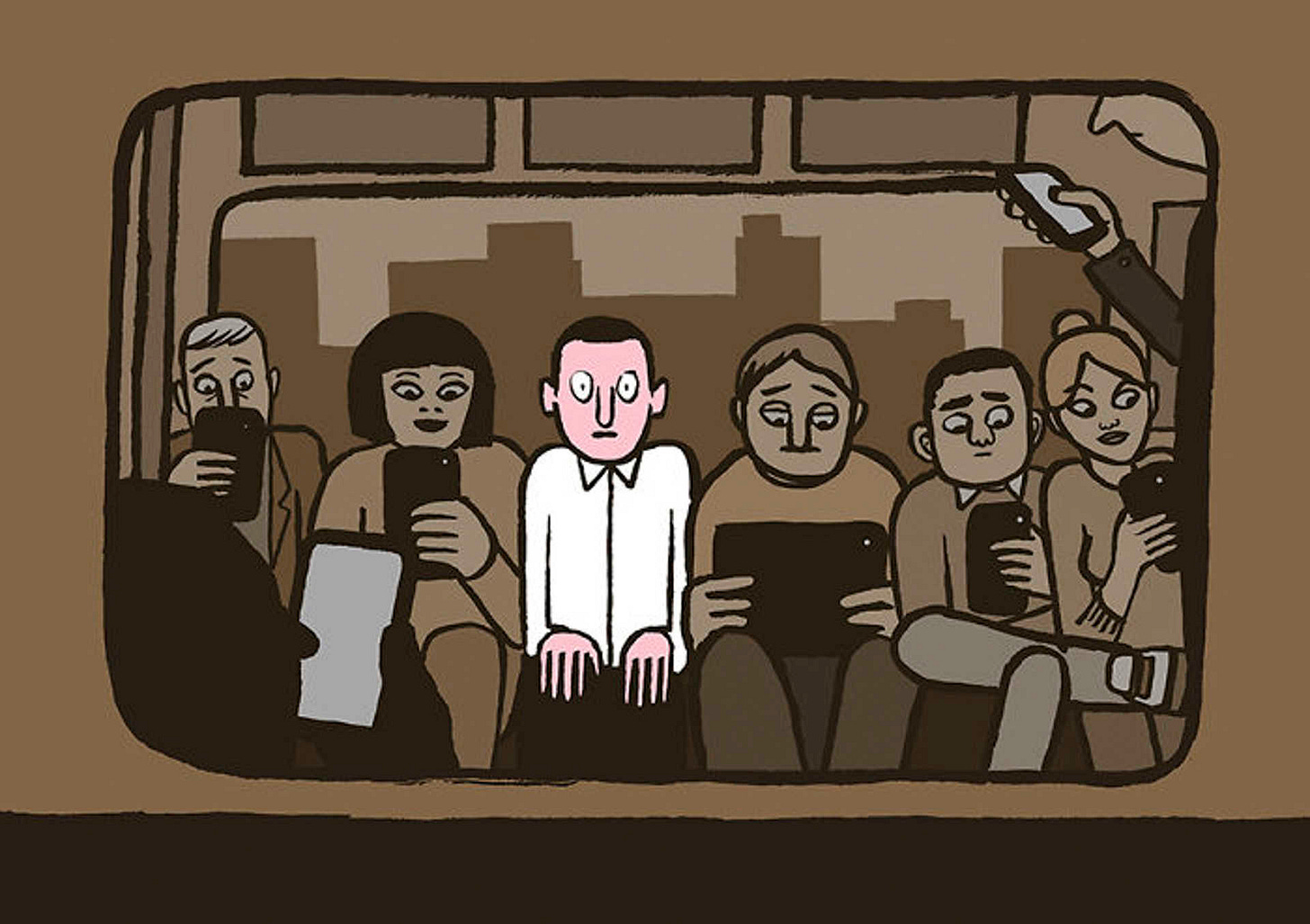To tweet, or not to tweet
Can we reap the benefits of social media without suffering the costs?
👋 Welcome to the latest issue of The Jungle Gym – the newsletter that helps you build a more fulfilling career by integrating your work and life.
✨ If you’re a new reader, thanks for stopping by. Feel free to check out this introductory post, which explains what The Jungle Gym is all about.
📬 To get future issues delivered to your inbox, enter your email here:
This essay was originally published yesterday, in Paul Millerd’s newsletter, Boundless. Big thanks to Paul for helping me bring this piece to life.
It can be hard to tell when addiction creeps into your life.
When I was a kid, I was addicted to sugar. I would spend hours mindlessly snacking, never feeling truly satiated. Each bite felt good at the moment but took a toll on my overall well-being.
Refined sugar is what evolutionary biologists refer to as a supernormal stimulus. Like pornography or video games, these man-made creations hijack our evolutionary desire for something natural and replace it with a drive to attain something artificial.
The problem with these supernormal stimuli is that they subvert our drive to seek out healthy things. Refined sugar lures us away from seeking nourishing sources of food. Pornography derails us from healthy companionship. Without realizing it, these stimuli can creep into our lives and subtly change our behavior.
Over the past few months, I’ve noticed a similar dynamic in my relationship with Twitter.
I can sense that Twitter is hijacking my natural drive to earning prestige from people I know and replacing it with an insatiable hunger to compete for status from internet strangers.
Don’t get me wrong– I get lots of value from Twitter. There are many people I count as friends with who I’ve only interacted through tweets and DMs. I’ve encountered ideas that have drastically improved my life. Even my bank account has benefitted from the investment opportunities I’ve discovered on the platform. Those are just a few reasons why I struggle so much with whether to keep tweeting.
There are certainly days when I “can’t believe this site is free.” But, lately, I'm worried about what I'm giving up in return.
How it Started
Until 2020, I didn’t take Twitter very seriously. Despite joining the platform in 2009, I never put much effort into tweeting. Most of my followers were people who knew me, and I considered myself lucky if I got more than a couple of engagements on anything I posted.
Then, in 2020, the subscriber base of this newsletter started to grow. What started as hundreds of readers ballooned into a couple thousand. Against the backdrop of pandemic-induced lockdowns, I got a lot of satisfaction from watching the graph of my Substack climb up and to the right.
The traction motivated me to put effort into growing my readership, so I sought the advice of a friend and talented marketer. He told me that Twitter was the best way to acquire readers. I also learned that many of the most engaging tweets follow a similar formula. They often start with a hook – something that grabs the reader’s attention like:
“Last year I lost ten million dollars.”
After the hook, you give the reader a hit of novelty. In this case, maybe it’s something like:
“It turns out the secret to getting wealthy isn’t making money, it’s learning how to hold on to it.”
Then you close out with a zinger that gets readers to retweet your content to their followers.
“While that was an expensive lesson, it was worth every penny.”
I started tweeting every day, and my audience grew. It was nothing crazy, but my follower growth rate was significantly higher than before. Just as my friend had predicted, some of those followers even turned into newsletter subscribers.
One side effect of tweeting every day was that I was incentivized to research and consume more insightful content. I found that any book or article I read could turn into the inspiration for my next tweet, which made me more thoughtful about my information diet. I believe that the pressure to “perform knowledge” on a consistent basis can have a genuinely positive impact on your thinking.
When a tweet did well I felt great. Each like, retweet, and new follower made me feel smart, skilled, and important all at once. The knowledge that there were actual humans behind the engagement only made it more thrilling.
Of course, not every tweet landed. When a tweet I labored over fell flat, I would find myself in a funk for hours. Was I smart? Was I a good writer? Did anybody actually want to read what I was saying? Was it a bad tweet or was I the problem?
I started viewing my online relationships through a transactional lens. Petty thoughts would creep into my head.
'Why should I like this person's tweet when they didn't like mine?'"
Those who know me will recognize that this perspective is diametrically opposed to my core values. I’ve always believed that great relationships are built through creating value without expecting anything in return. But, once Twitter allowed me to track exchanges of value, I couldn’t help but adopt a transactional mindset.
Meanwhile, I felt my thoughts conform to the algorithm’s preferences. If an idea couldn’t be expressed eloquently through a tweet, was it worth developing? If a thread didn’t generate engagement, should the thinking behind it be discarded? The medium wasn’t just shaping the message it was also transforming the messenger.
How it’s going
I don’t think I’m the only one in this situation. Countless friends have expressed concern to me about their relationship with Twitter or one of the other social platforms with similar dynamics.
Despite the release of films like The Social Dilemma which warn against the perils of social media, the effects of this technology show no signs of subsiding. Currently, over 50 million people consider themselves content creators. These individuals not only depend on social platforms for status, but they also need engaged audiences to make a living.
Given the incentives for nations and companies to automate, I would not be surprised if Content Creator becomes one of the most common professions across the globe. If automation does start rapidly commodifying skillsets, individuals will have even stronger incentives to sink time into social media to protect their career prospects.
One second-order effect of a booming creator economy is that many more humans will pay ever more attention to creators whose minds are being influenced by algorithms. Once the majority of media figures are dependent on these platforms, audience members will naturally start to emulate their pathologies.
If you believe this behavior will simply be confined to cyberspace, it’s worth re-examining the January 6th Capitol riots.





At its extreme, the drive to seek status from strangers can incentivize us to behave in ways that are against our long-term interests.
To tweet or not to tweet?
That is the question I am grappling with.
Building a presence online has given me so many gifts. I’ve met close friends. Gotten great opportunities and formed positive habits that have changed my life for the better. Given the direction the future is headed, I don’t think I can leave Twitter, and I don’t think you should either.
But that doesn’t mean we should allow our thinking and behavior to be subverted by the whims of supernormal stimuli. These algorithms are powerful tools, created by bright engineers and designers. If we aren’t careful they can subtly turn us into people we may not want to be.
While I have not yet found a healthy way to use Twitter, there seem to be a number of people who have.


Perhaps these people have mastered navigating the perils of living online or maybe they were just born with a better ability to resist the drawbacks.
I wish I could tell you that I’ve recovered from my addiction and am writing this article from a place of sobriety, but I am still grappling to define my relationship with Twitter.
With that said, here are a few things I’ve been trying lately that seem to help:
Remove the temptation to monitor engagement – After tweeting in the mornings, I try to remove the app from my phone for the rest of the day, so I’m not tempted to derail my attention by checking engagement.
Keep a generous mindset – When I’m scrolling through Twitter, I look for opportunities to give people the type of affirmation that I seek from tweeting.
Write long-form – I find that long-form writing is a much better medium for sound and structured thinking. That’s why I keep writing this newsletter.
Social media seems to be the water that’s filling up the tank we live in. Rather than fighting to stay above the surface, perhaps the best strategy for all of us is to learn how to swim.
If you enjoyed this issue of the newsletter, I'd really appreciate it if you could forward it to a friend, family member, or colleague who you think might like it too.
Or, if you'd like to share it on one of your social networks, that’s always great as well.
Until next time,
Thanks to: Paul Millerd for sparring with me on this post as well as great folks from Foster who provided early feedback like Alberto Arenza, David Burt, Gabe Strauss, Jordan T. Jones, Kavir Kaycee, Lyle McKeany, Nanya Sudhir, Nate Kadlac, Rika Goldberg, Rob Hardy Steven Ovadia, Stew Fortier.





How is it going? I just discovered the "joy" of twitter through a series of contentious data analytics threads, and am wondering if I need this in my life as much as I feel like I do, and this is before anyone has followed me.